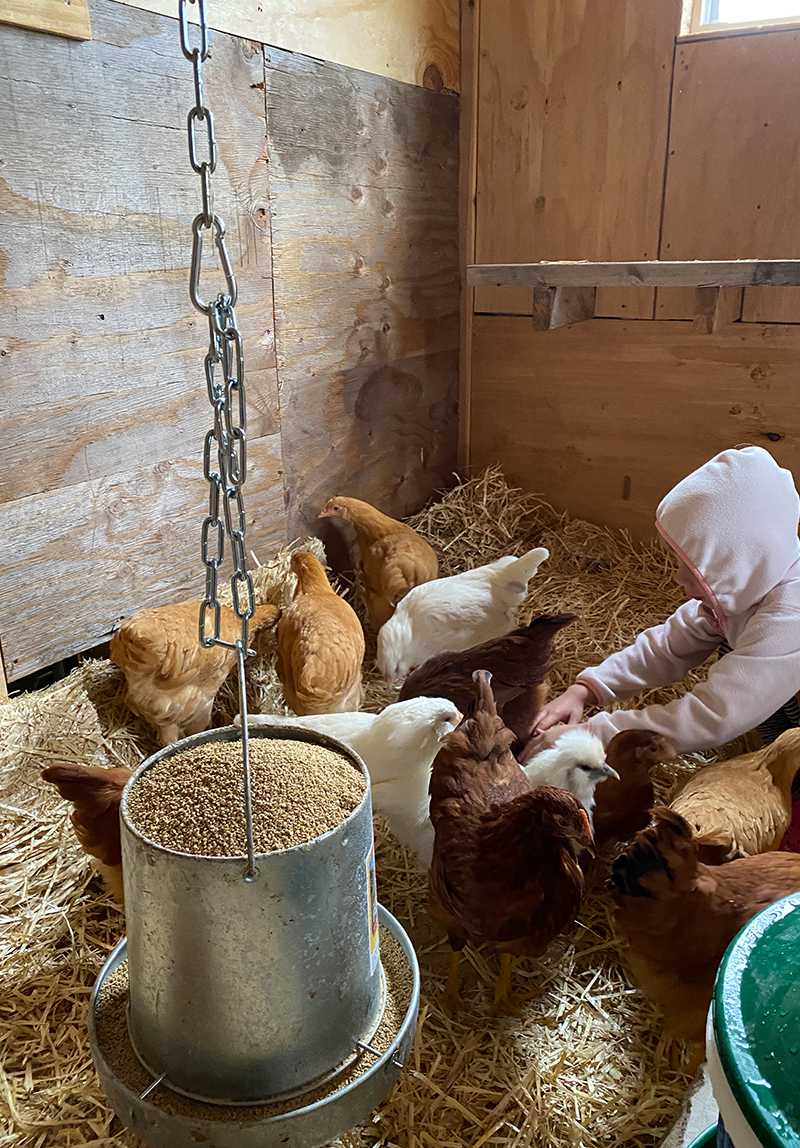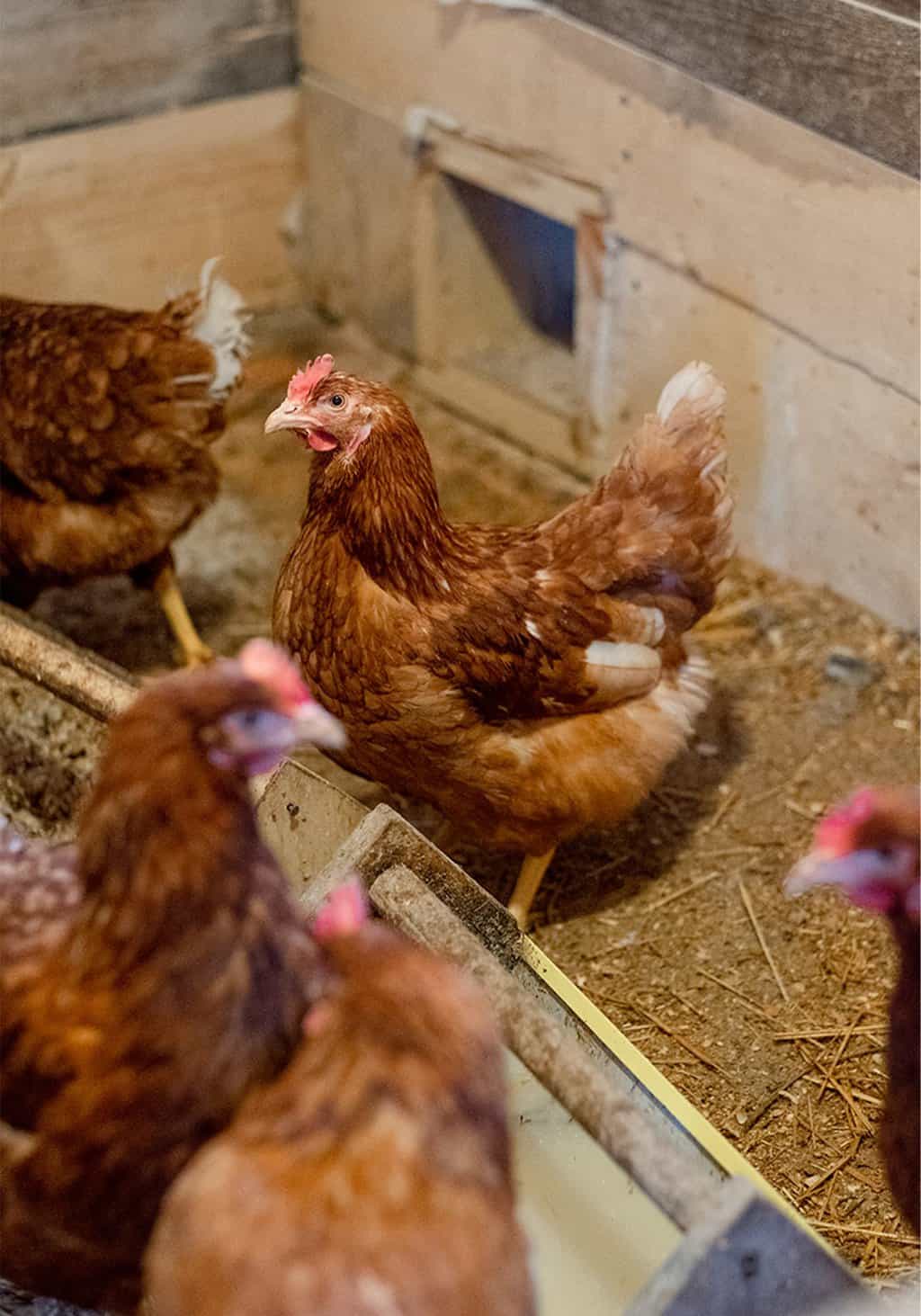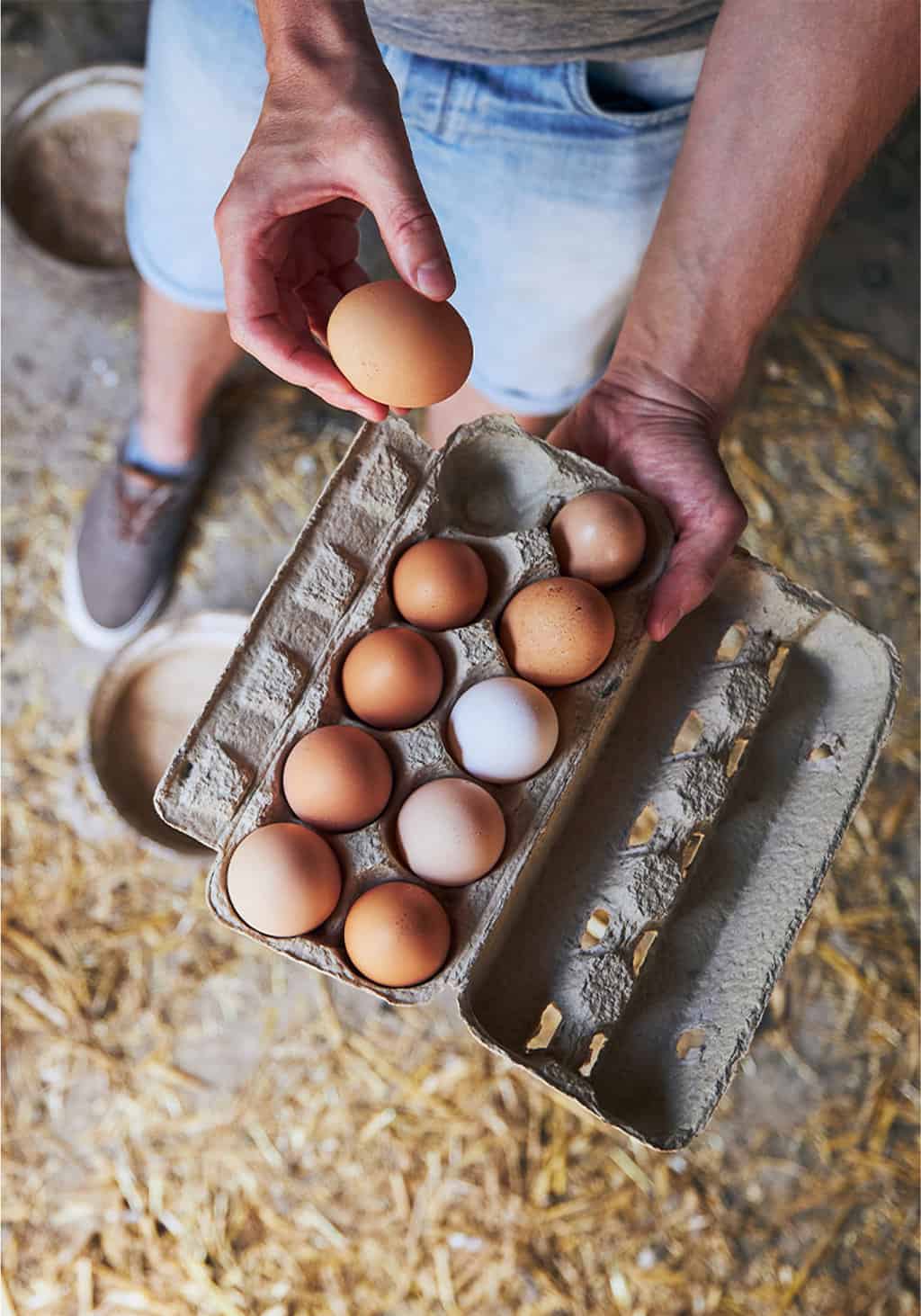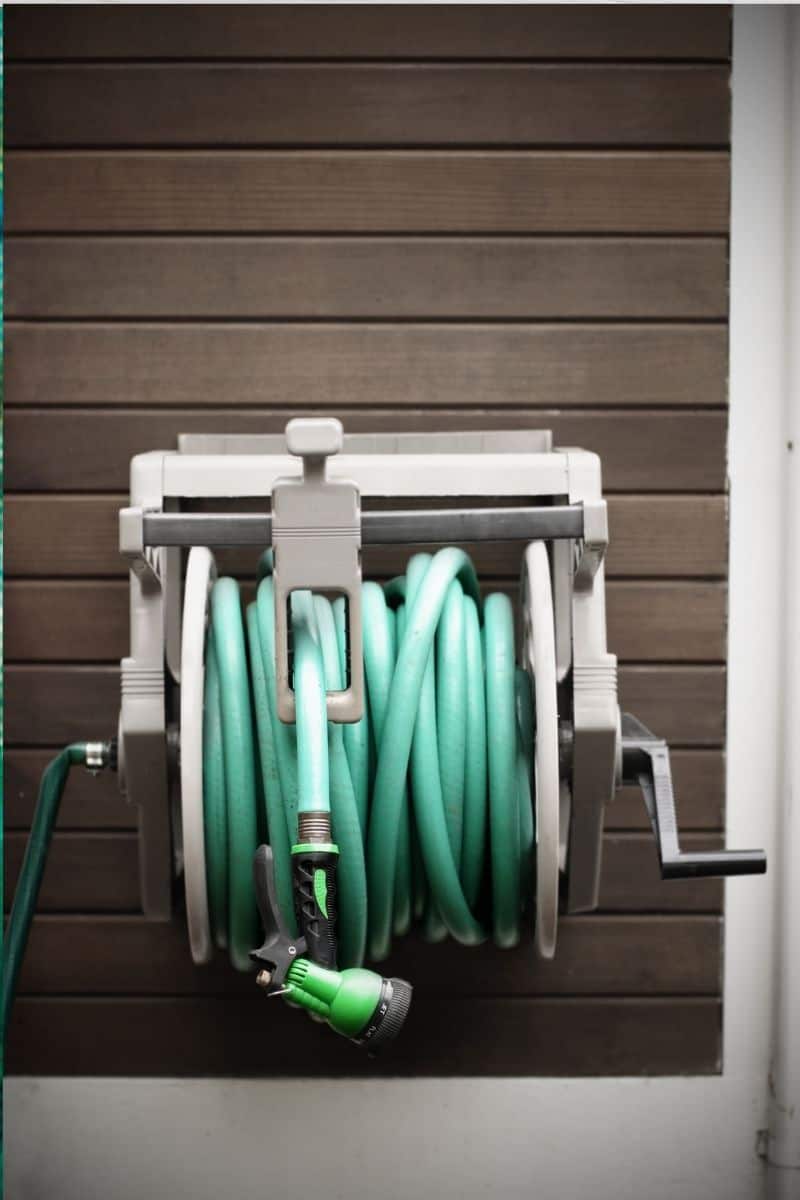Raising healthy backyard chickens is all about what you feed them. Knowing what to feed chickens is essential to their health and to your health as their owner if you are enjoying their eggs. So we gathered up a large list of what to feed chickens for you.
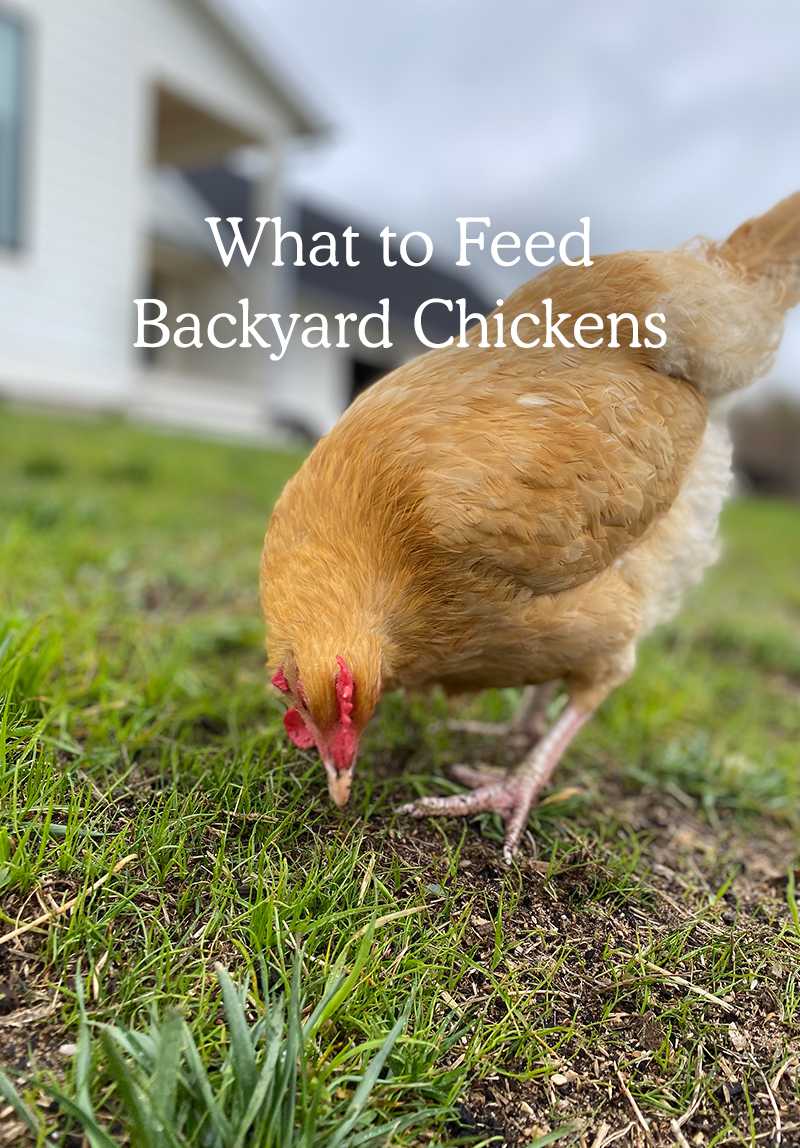
Chickens can eat a lot more than you may expect and they also require more feed than you may expect depending on the time of year. This was a big surprise to us as new chicken owners a few years ago, but learning the right way to feed your chickens is essential to their health.
Poor nutrients for your chickens can lead to serious and detrimental health issues for them. There are lots of ways their food affects them just like food affects us as well as humans.
The Best Things to Feed Chicken
The best way to think about feeding your chickens though is to feed them things that they would naturally come across in foraging whether your chickens forage or not this rule applies. The other rule to know about chickens is that they need rocks and grit to help properly digest their food.
Their stomachs and system work very differently from humans so they need the rocks to help with breaking down food. Finally, if you live in a cooler climate your backyard chickens are going to need far more food through the winter in general. In order to produce the body heat they need to stay healthy and not freeze they need more food. This is also part of why we don’t give our chickens a lamp in the winter.
That said, knowing what your chickens can eat is super important and what you should feed them to keep them healthy and to know that whatever they eat you will more or less be consuming as well if you eat their eggs. So here is everything you need to know about what to feed chickens.
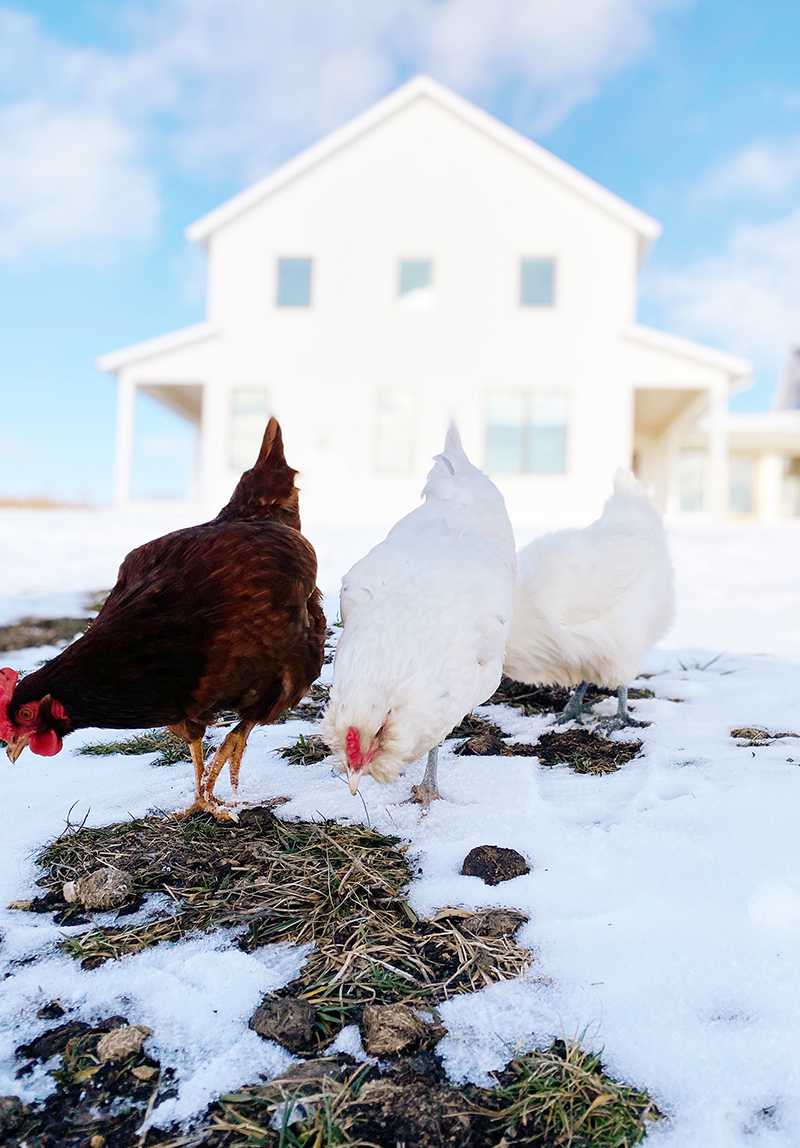
What Can Chicken Eat?
Below I have divided up what chickens eat into a few different main categories to be helpful in understanding what you can feed them and what they need.
The most important thing is to know that they need a well-rounded diet which they can handle easily on their own if foraging and supplemented with a feed and some other things, but when winter comes this can be a little harder to achieve so keeping this list in mind is good throughout the entire year.
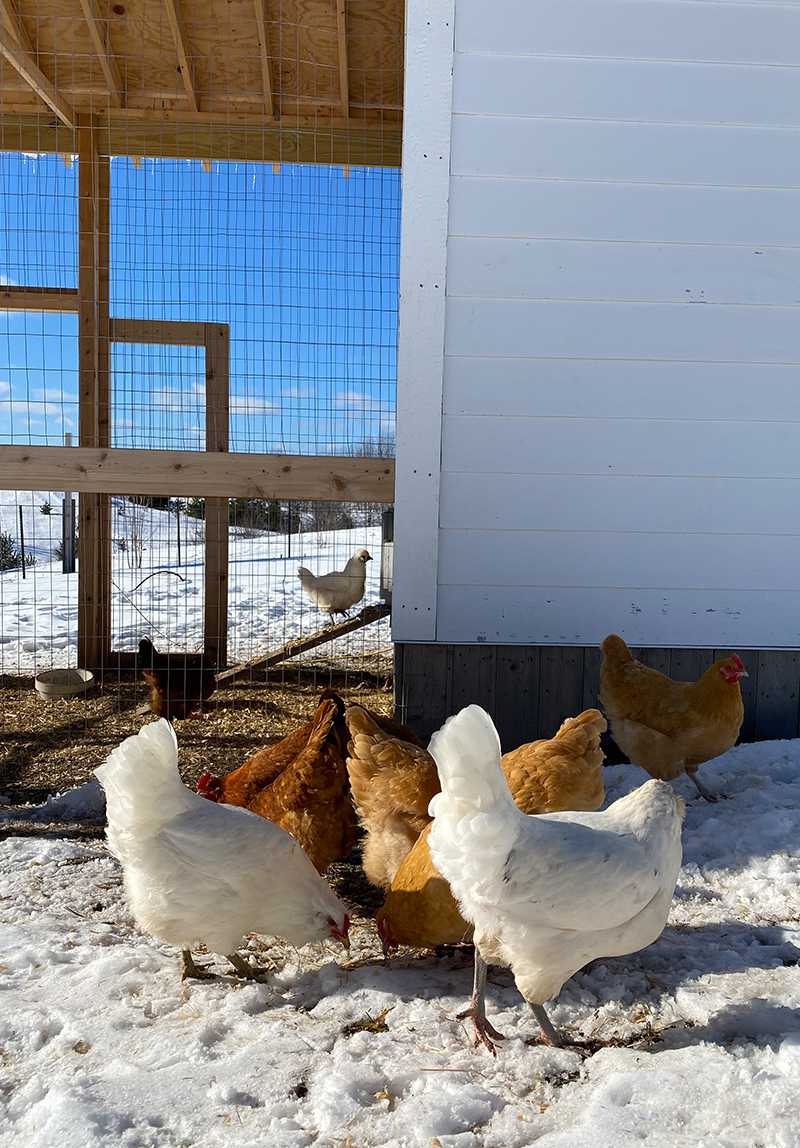
1. Feed and Supplements
These are the staples of what you will have to provide for your chicken through purchasing. Most of the other things you could purchase but they can be found and obtained more naturally.
Remember that you will want to consider what they ingest you ingest in terms of toxins and so on. So be mindful of what you offer to your chickens and where it comes from. Chicken feed is the most essential out of all of these.
Organic and Non-GMO Chicken Feed
Not all feeds are created equal by any means and knowing which one is right is tricky for your flock. Their needs change as they age and it depends on why you are raising them, but I am a fan of Grubbly’s feed as well this feed from Hen Up as well. If you want a more affordable option this one is trusty.
Oyster Shell
These are great to offer hens to support their eggshells. They contain calcium so they will enjoy them to help supplement all the egg-laying they are doing. Offer them in a bowl for them to use as needed.
Chicken Scratch
This is considered a treat for your chickens and is great spread on the ground. It contains lots of nuts and seeds and so on that they enjoy.
Flock Block
These are awesome to keep your hens busy especially in the winter. We keep one in the run all winter long to avoid pecking at each other out of boredom.
Poultry Grit
This helps your chickens process their food better. It isn’t necessary though if your chickens forage regularly and have rocky or sandy soil they can access. Sometimes in the winter, this is more necessary.
Sprouted grains / Fodder
This is awesome for your chickens in the winter. Sprouted grains generate tons of heat and stimulation in their digestion track which helps warm them. All you do is take a grain like winter berries or barley and let it sit in warm water for 24-36 hours and then strain and feed the hens. In the summer you can freeze it into blocks for cool treats.
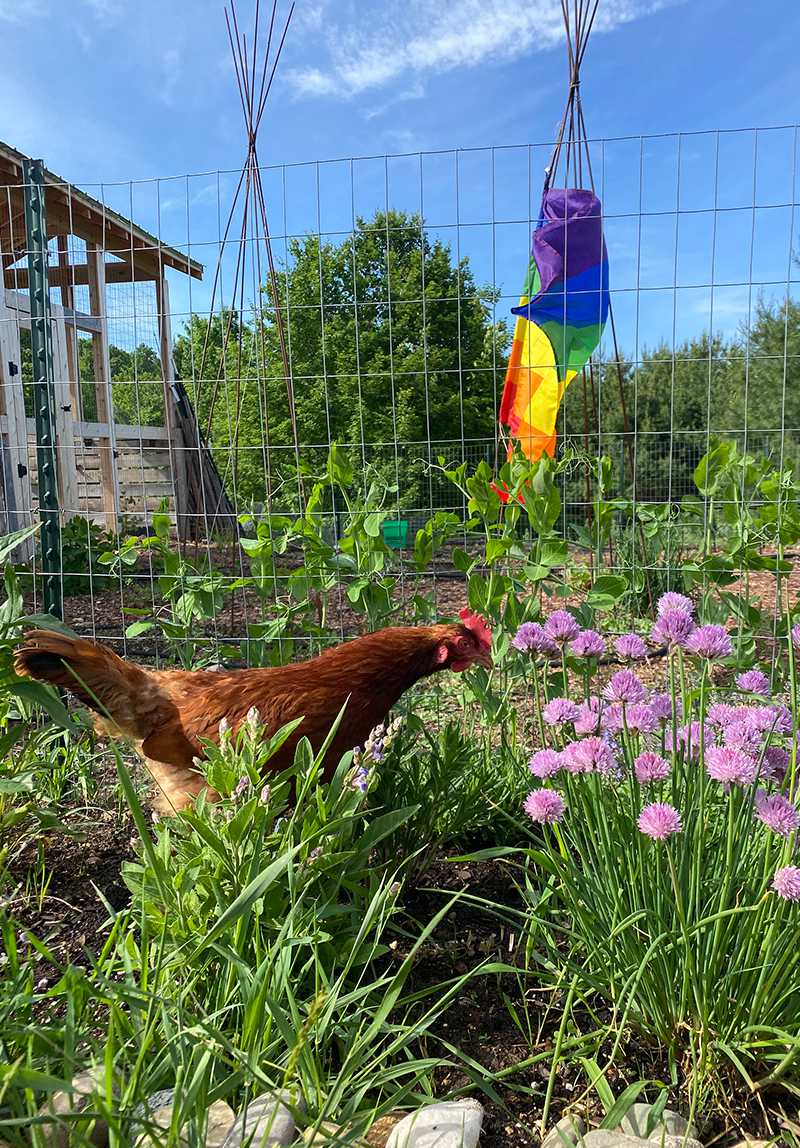
2. Bugs That Chickens Love to Eat
If your chickens are out foraging these are less needed for them. We forage our chickens 2-5 times a week depending on the time of year.
In the winter though I would suggest choosing a couple of the below bugs, which you can find dried to offer as treats since they will enjoy them and miss them in the depths of the cold.
- Ants
- Beetles
- Caterpillars
- Centipedes
- Cockroaches
- Crickets
- Dried Crickets
- Dried Insect Trail Mix
- Grasshoppers
- Grubs
- Dried Grubs
- Junebugs
- Mealworms
- Moths
- Slugs
- Termites
- Ticks
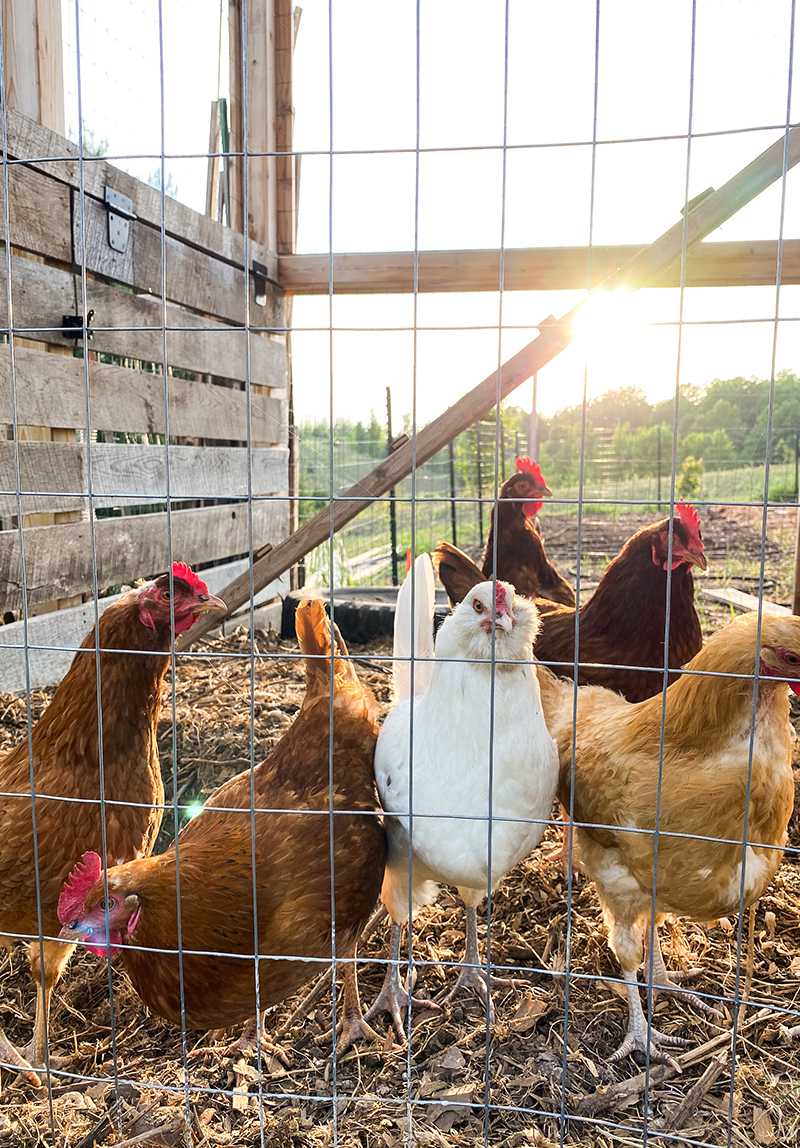
Best Weeds and Plants to Feed Chickens
One of the best ways to ensure your chickens are getting lots of nutrients is to feed them your weeds!
This is typically what you will see your chickens eating when they forage, but adding them into the mix for them by gathering them in a bucket and then tossing them into their run to eat is a great way to take unwanted plants in your garden or flower beds and turn them into nutrients and put them to good use.
Below you will find a list of plants but you can also include all of your vegetable and herb garden plants as well. We talk about how we use our chickens to help turn our garden and forage in this post about our DIY Compost Bins if you are interested in learning more.
- Chickweed
- Clover
- Dandelion
- Grass Clippings
- Lambsquarters
- Marigold
- Mugwort
- Nettles
- Oxalis
- Plantain
- Purslane
- Wild Violet
- Most every plant you grow in your garden
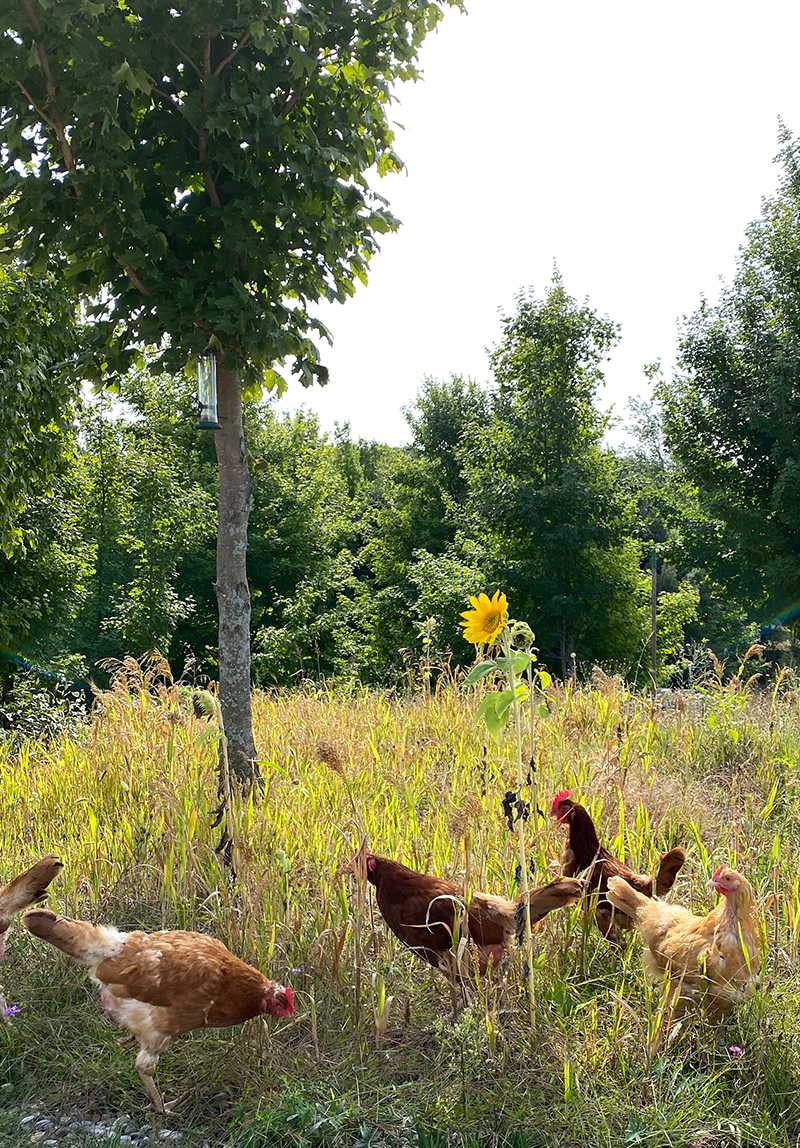
How To Feed Chickens
Knowing not just what chickens eat but also how to feed them is also really important to know when you are learning about what to feed chickens. It is far easiest than you may think and much of the time they regulate it all without much of our intervention.
How Much Should You Feed Chickens?
The good news is your chickens won’t ever overeat. It is true. We have a trough that is gravity fed and we fill it up every few days for them. They regulate their intake and it is inside their coop where they sleep at night.
How Often Should You Feed Chickens?
We feed our 12 chickens every 2-3 days with layer feed depending on how much they have consumed. Let them forage regularly during the days it is not snowing and they have access to their run during daylight which is regulated by an automatic door. We also bring them scraps from the kitchen and/or garden every single day.
Water for Your Hens
Chickens cannot go longer than 24 hours without fresh water so you need to check on their water at least every other day to make sure they have enough. For us, our chickens make it ABUNDANTLY clear when they need water, but this may not be true of your flock.
No matter the time of year make sure you create a great watering system to keep their water fresh and clean every day. You can see our list of the best chicken waterers and the best-heated chicken waterers here. If you feel like getting handy you can create a super simple DIY Chicken Waterer system as we did.
What you Shouldn’t Feed Them
What you shouldn’t feed chickens is really simple…Mainly they won’t eat citrus peels, banana peels, and so on. They shouldn’t have apple cores, garlic, rhubarb, or be fed avocados. They also shouldn’t be fed heavily processed foods or things with sugar in them.
What Can Happen if Their Diet Isn’t Right?
1. Reduced egg production:
Egg production is a strong indication of a chicken’s health and age. Most egg issues can stem from the diet. If something shifts with your chicken’s egg production their diet may not be correct for them, so keep an eye on their eggs and their overall health.
2. General unrest and feather picking:
If your chickens are pecking themselves, each other, and both they may not be getting what they need for their diet or their natural pecking desires.
This means they may need more foraging, treats, a pecking block, or something else. This is extremely common in the winter.
3. Abnormal eggs:
Eggs with changes in texture, color, shape, or anything in between can mean they may have too much protein or too little calcium. Another thing to watch is the size of the egg and if they contain double yolks often.
This can also be a sign of an issue with their diet.
4. Feather and Wattle Health:
If you see a lack of color or shine to their feathers the chickens are not healthy. You may need to change their feed, allow them to forage more, or provide them with more options for their diet.
You can also consider supplementing their water with Apple Cider Vinegar and adding a cup of Kelp meal per bag of feed to help up their health as well.
FAQs
Can I feed my chickens table scraps?
Yes, you can feed your chickens table scraps, but it is important to avoid giving them anything that is spoiled or moldy. Also, avoid feeding them anything that is high in salt, sugar, or fat.
Do chickens need grit?
Yes, chickens need the grit to help them digest their food. Grit is small, hard particles such as sand or small stones that the chickens swallow and use to grind up their food in their gizzard.
Can chickens eat grass?
Yes, chickens can eat grass and it is a good source of fiber. However, make sure to avoid giving them grass that has been treated with pesticides or herbicides.
Can I give my chickens treats?
Yes, you can give your chickens treats as long as they are healthy and given in moderation. Some good treats include fresh fruits and vegetables, mealworms, or cooked eggs.
Remember to always provide your chickens with a balanced diet and access to clean water to keep them healthy and happy.
Wrap up.
Feeding your chickens properly is not just important but vital to having a great happy flock of backyard chickens. Just remember that chickens can eat much of what you and I eat, but they just need a few other things.
You also want to make sure to feed them things that are good for you as well. Plenty of good kitchen scraps, plenty of foraging, and regular clean water and feed are given while keeping an eye on their eggs, wattles, and feathers. If you do this you should have a group of very healthy chickens.
More Posts to Help You Raise Healthy Backyard Chickens:
- How to Build the Best Coop
- Everything You Need to Know About Backyard Chickens
- DIY Compost Bin
- What You Need for Baby Chicks
Get your daily dose of gardening inspiration and education by following Fresh Exchange in IG, Pinterest, FB & YouTube and podcasts. Follow us now and start growing!
Want to take your gardening skills to the next level? Join the Fresh Exchange community and gain access to our exclusive gardening courses that will teach you everything you need to know to create a thriving garden. Sign up today and start your journey toward creating the garden of your dreams!

